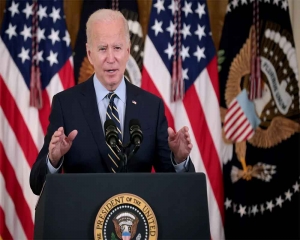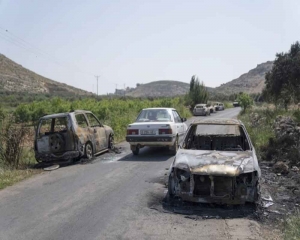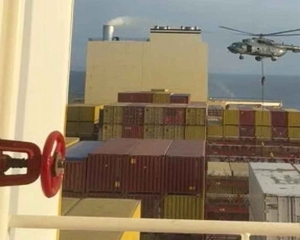P Chidambaram is behaving like the buccaneer of a sinking ship, indulging in sophistry on Jammu & Kashmir; in contrast, the erudite Jagmohan is still working on solutions
It is interesting to observe how some out of work and out of season politicians gradually lose grip of their mind and their faculty of reasoning. While some of them fade away, others struggle to remain relevant or in the circuit, keep saying or doing things that keep them in a negative circulation for a while. Congress leader P Chidambaram, former Union Home Minister, former Finance Minister, former Member of the Cabinet Committee on Security, former Member of the Cabinet Committee on Economic Affairs, is one such specimen who is out of work, marginalised in his party and struggling to retain credibility by increasingly speaking the language of separatism. In fact, he is fast emerging as a principal ideologue for the separatists in the Valley.
That a person, who has held as many positions in the Government of the Union of India as has Chidambaram, can speak so irresponsibly on matters of internal security must raise concerns for the state of the principal political party’s political acumen, its sense of political propriety and ought to send shudders down the spine of those who try to discern and analyse its politic vision and its future course of action. Chidambaram’s approach, which one is certain, has the blessings of his ‘High Command’ is a new low in Indian politics. It signifies a dangerous trend, a nadir in the trajectory of the Congress.
A mainstream political party articulating a praxis for separatism is indeed a degenerative low, it must worry all those who have India’s interest at heart and have evolved out of and subsist of its soil, civilisation and spiritual verities and owe a spontaneous allegiance to its sovereignty and unity. But the manner in which Rahul Gandhi’s Congress is kowtowing to separatists, the energy with which it is drawing up the political lexicon for separatism, and the conviction with which Rahul Gandhi rises to defend every fringe group and element that advocates India’s dissolution, is indeed ominous.
Even though Chidambaram’s place is now among the pantheon of discredited politicians in India and his views condemnable, one still needs to take note of the fact that he expresses doubt over Jammu and Kashmir’s accession to India; he does not treat it as a historic fait accompli but rather terms it as a “long pending dispute” between India and Pakistan and desists from terming Pakistan as the aggressor in Kashmir in 1947.
In short, in the entire column that he wrote last Sunday for an English daily, Chidambaram justified once again, the demand for azadi; denied that accession of the State to India was a settled matter; acted as the spokesperson for the Hurriyat; defended terrorism; took up cudgels for the stone-pelters, who are essentially fronts for terrorist outfits; proposed a soft approach to terrorists as against a muscular approach; laughed at the fact that those who met Dineshwar Sharma, the Centre’s interlocutor, were members of fruit growers and football associations - that outreach at this level indicates a grassroots desire and aspiration for getting on with life and a deep yearning for opportunities obviously escapes the swaggeringly arrogant Chidambaram, used as he is, to a rootless elitism - batted for withdrawing the Indian Army units from the State and lamented the ruling out of talks with Pakistan.
The Congress and its leaders, thus, have mastered the art of speaking for India’s enemies and adversaries, in the lead is Rahul Gandhi himself with his unequivocal support for the “breaking India brigade.” Prime Minister Narendra Modi’s healing approach towards the people of Jammu & Kashmir and his determined stance against separatism and terrorism has actually generated hope at grassroots in the State. But hope and aspirations are elements which are antithetical to violence and disruption; it is anathema to parties like the present Congress. As for Chidambaram, going by his current pronouncement, it is hard to think that the man was once in charge of the internal security of this country!
Be that as it may, in my view, it would be wise not to trust the articulations of a failed politician, in this case Chidambaram, especially when he articulates on issues like Jammu & Kashmir, for incorrigibly self-serving politicians, championing any cause is justified, as long as it keeps him/her in the limelight. One would be wise to trust the judgement of leader-administrators like Jagmohan, for example, who have dedicated a substantial portion of their life and energies to the State of Jammu & Kashmir and who has also held important positions at the Union level. His unflagging zeal for the welfare of the State and the well-being of its people continues unabated.
The 12th edition of his opus, My Frozen Turbulence in Kashmir, has appeared. By now, the opus should have become mandatory reading for those who wished to genuinely understand the Jammu & Kashmir saga and its varied dimensions. Those who have read it in its entirety have developed a different understanding of the State and its issues and those who have always advocated separatism, have gone soft on terrorism and have softly propounded the Pakistani line on the State, have avoided reading it or, having read it, have tried to suppress and bury it. But Jagmohan continues to wield the pen and to flash the book; it refuses to fade and continues to emphasis the relevance and existence of a different narrative, the actual narrative of Jammu & Kashmir.
In this 12th edition, Jagmohan has added a new chapter titled, ‘Onward to a New Resolve’ and examines the period of 33 months between May 26, 2014 and February 28, 2017. Jagmohan proffers a seven-point agenda on how Pakistan needs to be exposed and its diabolical designs in the Valley be thwarted. It is these steps, Jagmohan implies and argues which will gradually check Pakistan’s capacities for perpetuating terror, will weaken its international networks, will strengthen India’s case and will also work towards ushering in greater stability in the State.
(The writer is director, Dr Syama Prasad Mookerjee, Research Foundation, New Delhi.Views expressed are personal)
(The concluding part of this article will appear in these columns tomorrow)

























